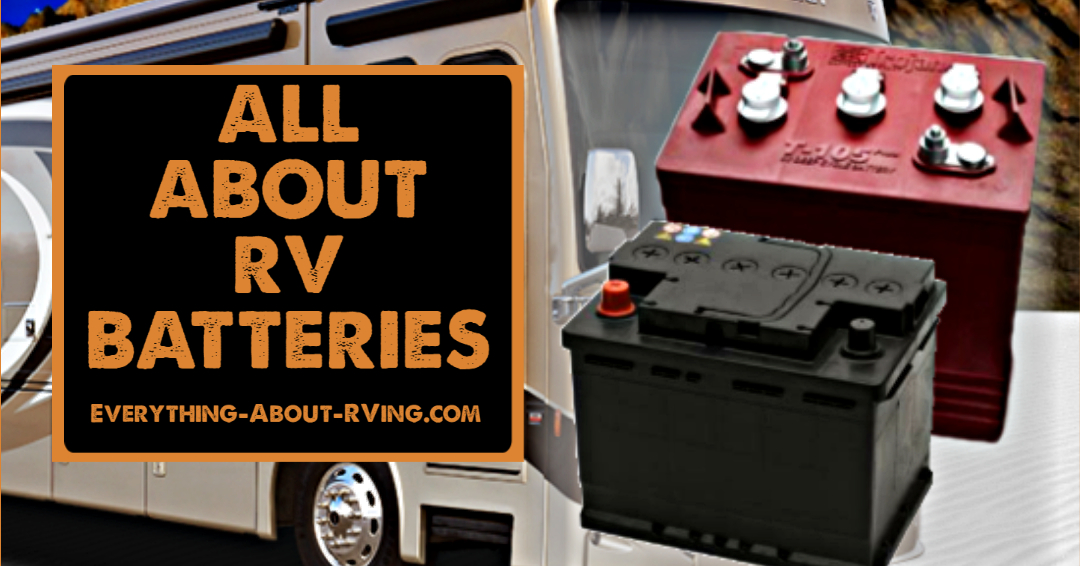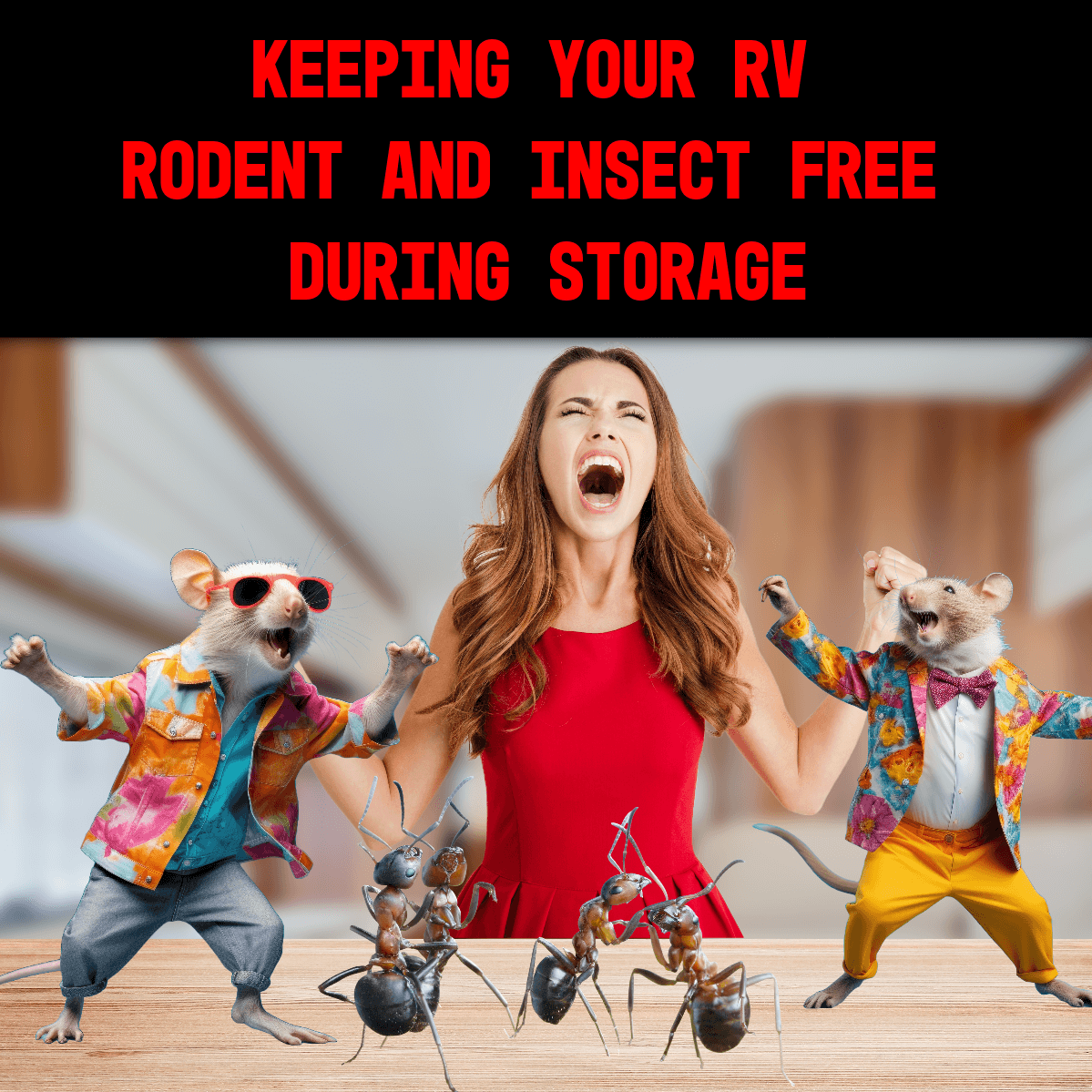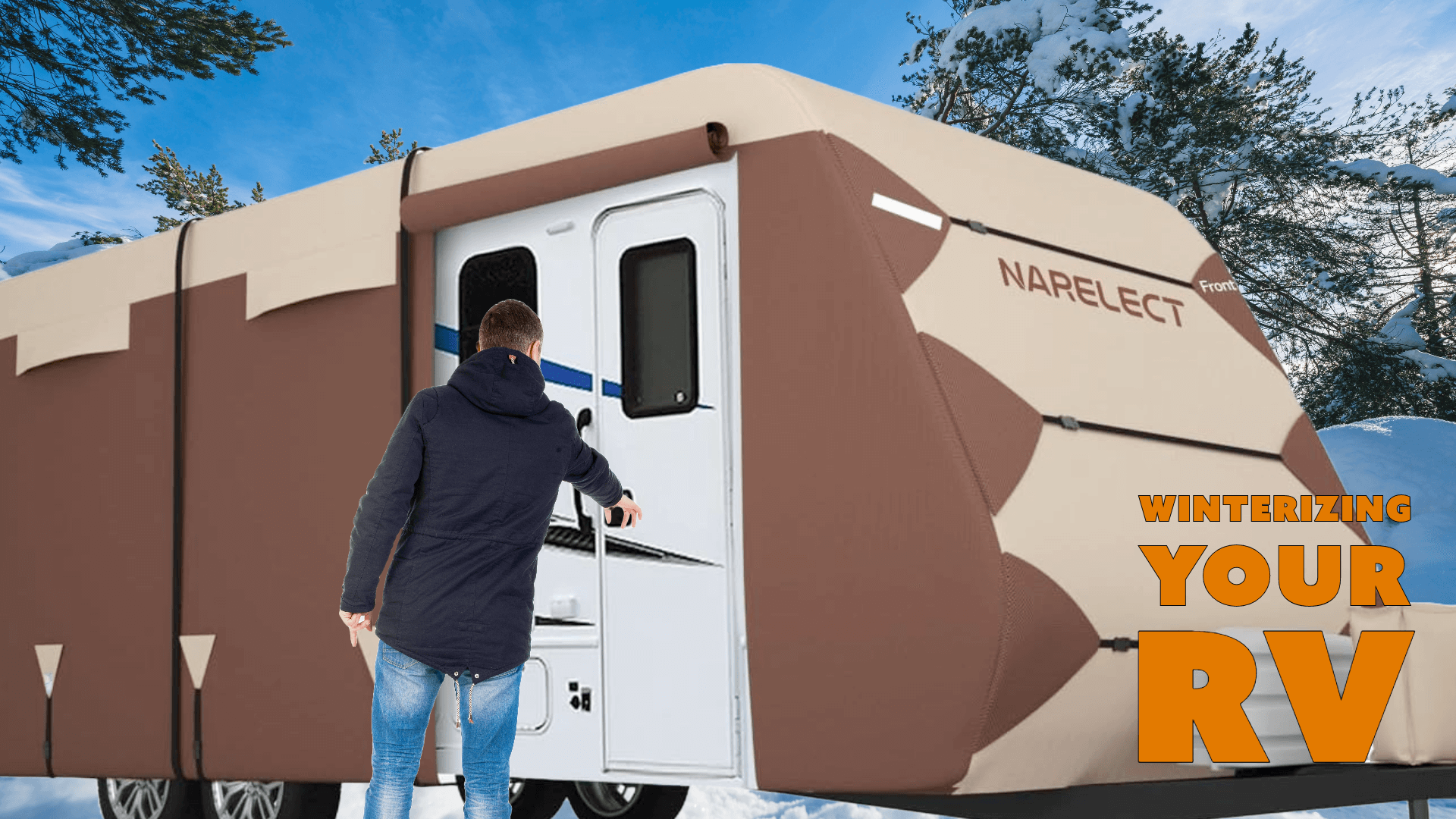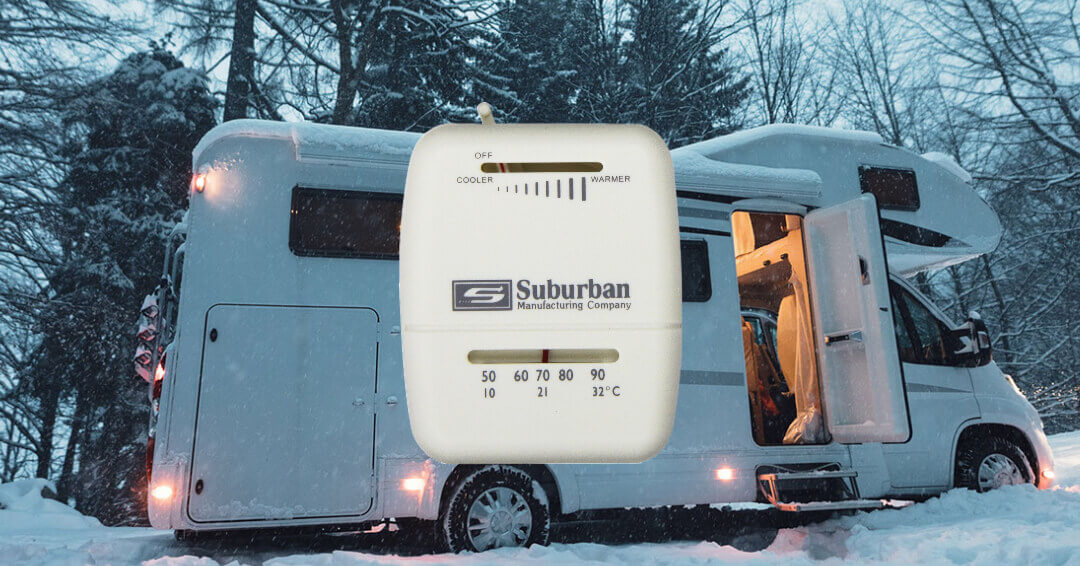- Home Page
- RVing Tips & Tricks
- Recreational Vehicle Batteries
Recreational Vehicle Batteries
Recreational vehicles can have two different types of batteries
By Raymond Laubert
RV Tip of the Day... RV Batteries - There are two uses for batteries, coach and house batteries. Coach batteries are those that are used to start the RV. These are normal 12 v car or truck type batteries and are designed to provide a lot of amperage for a short period of time. The house batteries are deep cycle batteries which are designed to provide a lower amperage for a much longer period of time.
Most of us will understand the coach batteries and can tell when it is time to replace them. They will last 3-5 years. You can tell when a coach battery starts to go bad in that it has trouble starting the engine, cranks slow or dies pretty quickly when the lights are left on. Maintenance and inspection will be covered below.
House batteries are a little more difficult to cover simply because of the wide range of use and types available. Let's start with the purpose. House batteries are designed to run everything in the rig, from the lights to the fans and heaters. Almost everything in the RV uses electric from the batteries. As such these need to provide current (amperage) for a long period of time. Typically the house batteries can be called on to provide current for days at a low amperage. This type of battery is called a deep cycle battery.
All RVs run on 12 v DC systems. However, not all RVs use 12 V batteries. Many motor homes will use 6 v batteries. 6 volt batteries are often called golf cart batteries as that is a primary use for them. 6 volt batteries are designed to provide current over long periods of time which makes them ideal for RVers who want to camp without electric for a few days.
There are too many types of batteries to cover here. Basically, the more expensive the battery the better and longer it should last. Maintenance free batteries simply means that you don't have to add water as part of the maintenance.
Speaking of maintenance, what maintenance should be performed and when. If a battery is in use on a daily or weekly basis, keeping it clean and charged is most of the maintenance that will be needed. If your batteries are being used to provide a limited amount of current, a trickle charger can be used to keep them charge. Trickle chargers can be AC (house current) or solar. They provide a small amount of current to keep the batteries topped off.
If the batteries are the type with removal able caps (IE maintenance type batteries), then you will need to perform a little more maintenance every now and then. Non-maintenance free batteries will require a hydrometer.
A hydrometer is used to check the specific gravity (acid to water) of the battery. Its use is to determine if you need to add distilled water or battery acid to the battery. You simply remove the cap on each set of cells and draw a little bit of the fluid into the hydrometer. It will tell you the state of the fluid. Most of the time you will need to add distilled water. Add a little at a time and retest.
If you are going to put your RV into storage for a while, remove the batteries, place them in a cool (not cold or hot) area and put a trickle charger on them. This will keep the batteries charged and ready for use. Make sure to check the non-maintenance free batteries for the proper levels once a month or so.
Finally a full charged battery should read over 13.2 volts or more when not in use and not connected to any type of charger. If the voltage drops to less than 13 volts, the life of the battery is coming to an end and should be scheduled for replacement.
About The Author
Raymond Laubert is retired Air Force with 21 years of service. He recently retired with early social security and is traveling around the country with his wife Daisy and their two dogs.
He is a Certified RV Inspector and has taken up writing articles and helping folks new to the RV world get the most from their investment.
His articles are posted on Facebook at https://www.facebook.com/groups/RVInspectionService/ and on his website at RV Inspection Service
Do you have any suggestions or comments on this topic? You can add them to this page by using the comments section located below.




